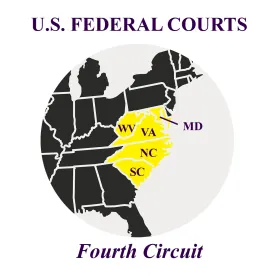On 17 August 2022, the U.S. Court of Appeals for the Fourth Circuit (the Fourth Circuit) issued an opinion in Britt v. Dejoy1 adopting a new rule regarding the court’s jurisdiction over appeals from a district court’s dismissal of a case without prejudice. The court held that, when a district court dismisses a complaint or all of a plaintiff’s remaining claims without prejudice and does not expressly provide leave to amend the complaint, the order is a final and appealable order. This rule largely eliminates the court’s prior multicomponent evaluation of whether it had jurisdiction in favor of a more streamlined approach providing a clear path to appellate review.
Determining The Finality of A District Court Order
Pursuant to 28 U.S.C. § 1291, an appellate court has jurisdiction over appeals arising “from all final decisions of the district courts.” It is well established that an order dismissing a complaint and granting leave to amend the complaint is generally not a final order for appeal purposes. In Britt, the Fourth Circuit analyzed its jurisdiction over an appeal from a district court order dismissing the plaintiff’s remaining claim without prejudice; however, the district court’s order was silent as to the plaintiff’s right to amend its pleading.
Prior to the Britt decision, in Domino Sugar Corp v. Sugar Workers Local Union 392,2 the court held that a dismissal without prejudice was not appealable unless the grounds for dismissal clearly indicated that no amendment in the complaint could cure the defects in the plaintiff’s case. The Domino Sugar ruling resulted in a test requiring a case-by-case determination as to the finality of a district court’s order dismissing a complaint without prejudice.
In the Britt decision, citing the confusion and uncertainty caused by a case-by-case approach in attempting to discern a district court’s intention to enter a final and appealable order, the court elected to adopt a bright-line rule. The court held that, “when a district court dismisses a complaint or all claims without providing leave to amend, we need not evaluate the grounds for dismissal or do anything more—the order dismissing the complaint is final and appealable.” In such a case, because the order will be considered a final judgment, the plaintiff will have an immediate right to appeal regardless of the fact that the court dismissed the plaintiff’s claims without prejudice.
The court continued on to give guidance to district courts. If a district court determines that a plaintiff’s claims as pleaded are deficient but can be cured, the Britt decision dictates that the district court should indicate such in its ruling and grant the plaintiff leave to amend its pleading. If amendment would not cure a complaint or the district court does not otherwise intend to grant leave to amend the pleading, the district court should issue a separate document dismissing a claim as a final judgment in compliance with Rule 58 of the Federal Rules of Civil Procedure.
Finally, the court identified some uncertainties that might arise from application of the new rule established in Britt. In instances when the district court enters an order dismissing the plaintiff’s claims and expressly grants leave to amend, the order would not be an appealable final judgment. In those instances, a plaintiff may elect to stand on its complaint, waiving its right to amend, and request that the district court finalize its order to give the plaintiff the ability to seek immediate appellate review. Alternatively, if the district court does not expressly grant leave to amend and the plaintiff would prefer to cure the deficiencies of its complaint by amendment, rather than seek appellate review, the plaintiff may move the district court to reopen the action or vacate the judgment.
Practical Implications
The Britt decision does not affect the Federal Rules of Civil Procedure establishing that the court-ordered dismissal of a case with prejudice is immediately appealable and that an order dismissing a case without prejudice but with leave to amend is interlocutory. Rather, the Britt rule applies primarily to circumstances when a district court dismisses a complaint without prejudice but remains silent as to the plaintiff’s right to amend its complaint. In that case, a plaintiff now generally lacks an immediate right to file an amended complaint (absent clarification from the court) but may appeal the decision as final.
This new standard eliminates much of the guess-work and analysis previously required to interpret whether the district court intended to enter a final and immediately appealable order or intended to allow a plaintiff to re-file a complaint. While it is likely to create some confusion in the immediate future, the ruling provides much-needed clarity for distinguishing between interlocutory and final orders of dismissal.
FOOTNOTES
1 No. 20-1620 (4th Cir. Aug. 17, 2022).
2 10 F.3d 1064 (4th Cir. 1994).



 />i
/>i

